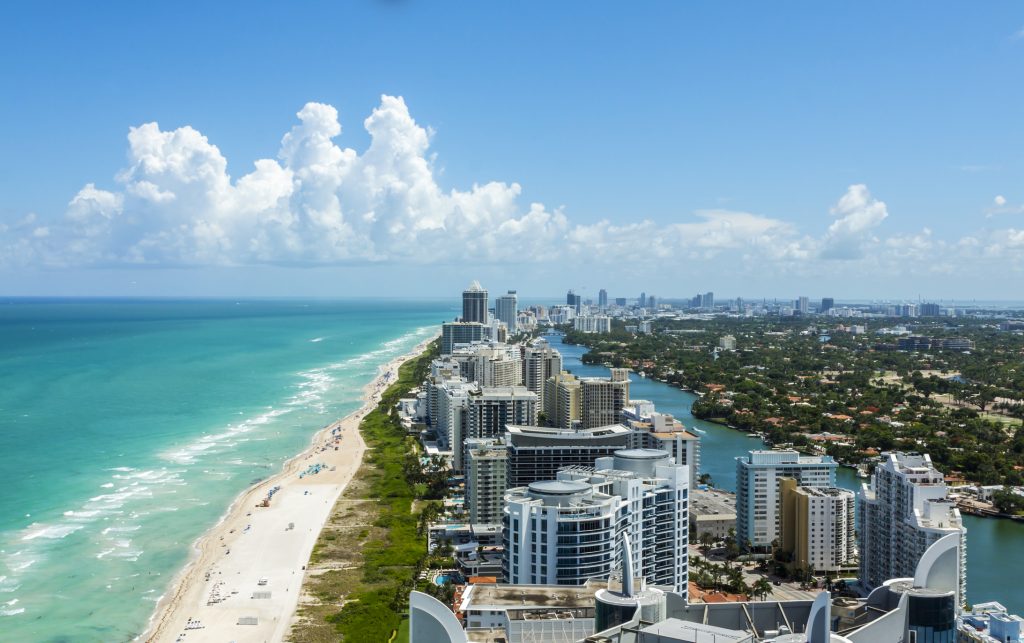As the pandemic surged across the country, real estate sales in Southern Florida fell sharply in the second quarter of 2020, according to a new report released by Douglas Elliman.
“After a robust first quarter, the COVID-19 market shutdown during much of the second quarter caused sales to see substantial declines,” the report read.
In the Miami coastal mainland, sales were down 20.1% from the previous quarter, down 39.6% year over year. Condo sales fell even further, dropping 33.4% from the previous quarter and 47.7% year over year.
In Fort Lauderdale, home sales overall plunged 31.5% from the first quarter, while condo sales dropped 27.5%, the highest rate in more than thirteen years. In Miami Beach, sales were down 34.9% from the previous quarter.
Only Coral Gables registered positive sales numbers in the second quarter, up 3.2% from the previous quarter and 18.3% year over year.
“I think it’s safe to say there was no spring market this year,” said report author Jonathan Miller, CEO of Miller Samuel. “It was paused, and that resulted in a sharp downturn in sales. The same pattern has emerged in almost every market across the country. The second quarter essentially represented the lockdown during the pandemic, so many of the transactions that actually closed had their start before the quarter.”
Meanwhile, home prices were another story, rising to new records across Southern Florida as inventory fell sharply in the second quarter.
In the Miami coastal mainland, Douglas Elliman reported an 11.7% increase in the average sale price from the previous quarter, Miami Beach saw an increase of 12.4% and Fort Lauderdale saw an increase of 7.3%.
In Coral Gables, the average sales price was up to $2,159,930, an increase of 77.1% from the first quarter of 2020; 47.0% year over year.
While shrinking inventory is behind the rise in prices, Miller said he expects that situation to improve in the coming quarter. “A lot of inventory just wasn’t on the market,” he said. “When there’s a lockdown, people are reluctant to let other people into their homes.”
Miller, who’s been writing the Elliman Reports for the past 25 years, predicts things will turn around in the Miami area by the third quarter.
“Miami seems to be on the upswing, benefitting from migration from the Northeast, which is really starting to accelerate. And now with things like Zoom becoming ubiquitous seemingly overnight, working remotely doesn’t have any stigma. Once this health crisis begins to go away, I think the real change in the housing market is the tether between work and home just got a lot longer.”
While Miami stands to benefit from what might be permanent changes in where and how Americans want to live post-pandemic, how things go in the short run largely depends on how the city is able to manage the pandemic moving forward.
“Inventory comes back first, then contract activity ramps up,” Miller said. “The market in the third quarter is expected to be the spring market that never was. But the variable here is the second wave. The impact could be diminished as a result.”


I’d be curious to see what the quarter will be when all the stimulus money is gone.